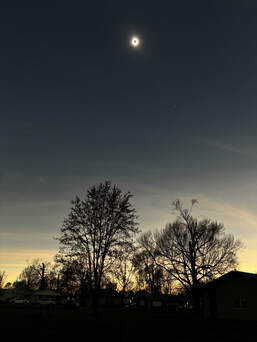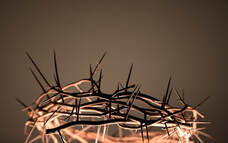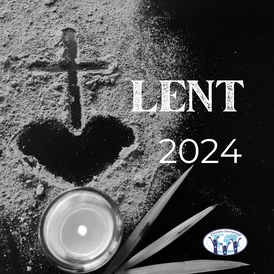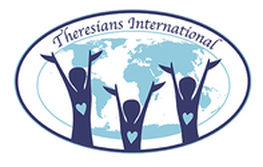Discernment By Tammy Townsend Denny, TI Executive Director By now, you probably have heard that I will be leaving my position as executive director of TI on July 31 (if you haven’t received the news yet, please check your email for a letter that went out from our TI board of directors on June 28). I have accepted a new position as associate director of The Leadership Collaborative, an organization which fosters transformational leadership for Catholic sisters and their associates. This decision involved a lot of discernment, a word we hear frequently in Catholic circles. But what does it mean to discern? Discernment was not even in my vocabulary until I started working with Catholic sisters. Their influence taught me that to discern is to pause, pray, and listen for God’s guidance. My spiritual director helped me understand that to discern is to spend time with questions that may not have obvious answers. It is an invitation to delve more deeply into the divine mystery. And she recommended the book Decision Making & Spiritual Discernment: The Sacred Art of Finding Your Way, by Nancy L. Bieber. At Mass, the new pastor at our church talked about discernment by sharing his vocation story. His path to the priesthood began in earnest when he went to Adoration to discern his vocation and pray for God’s guidance. As he left Adoration, a woman stopped him and said, “I usually don’t do this, but I had a vision of you as a priest.” As I discerned my next steps, I also went to Adoration, praying for God’s guidance and listening in the silence. I was hoping a stranger would approach and share visions of my future, but the chapel was quiet, and the parking lot empty. Too often, I am guilty of praying as if God were a prayer-answering vending machine. Insert a Hail Mary here; get an answer there. It doesn’t work like that most of the time, at least for me. Yes, there are stories of immediate answers, like the priest’s vocation story. But many more times, there is silence. What do we do with the silence? I am reminded of a conversation Jan Richardson writes about in her book In the Sanctuary of Women. During a walk with her friend Brother David, a Franciscan friar, she asked him, “What’s discernment like for you?” Brother David shared with her a story of Saint Francis and Brother Masseo, who had come to a crossroads on their journey: “Not knowing which path to take, Saint Francis tells Brother Masseo to stand at the center of the crossroads and spin himself around. When Masseo finally falls down, Francis and his dizzy brother set off in the direction in which Masseo had landed.” Richardson goes on to explain that while the story “may strike us as silly,” it is a reminder “that on those occasions when there’s no one path that’s obviously the right one to take, it’s often better to set off in some direction if the alternative means staying stuck at the crossroads. God knows how to make use of any path.” As I discerned my path, I prayed. I journaled. I read. I talked with trusted advisers, both spiritual and professional. And I considered spinning around in circles like Brother Masseo. Ultimately, I trusted the call and path that led to a soul-warming calm. Change is disconcerting even with Spirit-led discernment. Please know that I am working with the TI Board of Directors to make this transition as smooth as possible. I am available even after July 31 to assist with questions. And be assured that the TI office is fully operational. We are here to support you!
0 Comments
Invitation to Encounter ChristBy Tammy Townsend Denny, TI Executive Director
I would like to introduce you to a new podcast called “Skinny Thoughts on Christ’s Peace” hosted by Dr. timone davis (lowercase intentional). In the podcast, Dr. davis “invites you to lift your spirits with these sermons and meditations on Christ’s peace.” I have had the good fortune of studying with Dr. davis as part of my Master of Divinity coursework at Loyola University – Chicago. She is a powerful storyteller who will inspire you to encounter Christ in new and bold ways. I hope you enjoy her message as much as I do. A Garden of Hope Image by Ekaterina Ershova from Pixabay Image by Ekaterina Ershova from Pixabay Last weekend, I planted our vegetable garden. For those in warmer climates, it might seem a little late to be planting, but in the Upper Midwest of the U.S., mid-to-late May is the earliest we can plant. As I tucked the delicate little plants into the dirt, I began to think about hope. There is a lot of hope in planting a garden. There is the hope that I will get more than a sore back from all the work. There is the hope that the rabbits won’t eat the green bean plants like they did last year. There is the hope that the sun and the soil come together in their divine dance to produce a bountiful crop of tomatoes, cucumbers, peas, green beans, onions, leeks, and lettuce. There is the hope for the garden-fresh dinners to come. But there is a deeper hope when I plant a garden. There is the hope that I will be here to harvest the vegetables. There is the hope that my home, my family, my life as I know it will be here when the tomatoes are at their most abundant. There is the hope of more days, weeks, and months to come. Though, there are no guarantees. We read in Hebrews 11:1: “Faith is the realization of what is hoped for and evidence of things not seen.” It is easy to lose our faith and our hope in a world of turmoil. It is easy to slip into a “woe is me” or “what’s the point” thinking. Why plant a garden if there is not hope for tomorrow? I prefer to believe that “whoever sows bountifully will also reap bountifully” (2 Corinthians 9:6). So, I keep tucking the little plants into the dirt with hope for tomorrow. Gathering By Tammy Townsend Denny, TI Executive Director Have you registered for the Gathering in Houston? The deadline is approaching quickly! (Scroll down for the link to register). The Gathering Committee has worked diligently for many months to create an exciting weekend for you, featuring speakers Robin Hebert, Sister Francis Bisland, COS, and Sister Sarah Simmons, CSJ. To hear one of our speakers, consider listening to “What Sisters Read” on the podcast Beyond The Habit. In this April 9 episode, Sister Sarah Simmons talks with Sister Erin McDonald and Sister Colleen Gibson about her favorite books. My guess is that some of her favorites might be your favorites, too! Click here to listen. Please remember that financial assistance is available for the Gathering. Through the generosity of the Theresian Foundation and individual Theresian benefactors, a limited number of reduced registration fees of $125 are available. Simply complete the online registration form and check the box that says you would like financial assistance. God is with usBy Tammy Townsend Denny, TI Executive Director Many years ago, during a particularly difficult time in my life, a friend shared with me something that her Spanish grandmother used to tell her: God is even in the toilet. Before you take offense, please let me explain: My friend shared her grandmother’s words with me not to disrespect the sacred divinity of the Almighty, but rather to remind me that God is always with me, even in the bathroom. God is there in the most challenging, painful, horrible times and in the most average, every day, mundane moments. Divine Love never abandons us. I was reminded of my friend’s words this week when the professor for one of my Master of Divinity courses opened class by reading the essay “God is on the Bathroom Floor.” In this essay, the author, who goes by the moniker Nightbirde, writes about her cancer diagnosis. She shares: “The bathroom floor became my place to hide, where I could scream and be ugly; where I could sob and spit and eventually doze off, happy to be asleep, even with my head on the toilet… Call me bitter if you want to—that’s fair. Count me among the angry, the cynical, the offended, the hardened. But count me also among the friends of God. For I have seen Him in rare form. I have felt His exhale, laid in His shadow, squinted to read the message He wrote for me in the grout: ‘I’m sad too.’” She goes on to write, “Even on days when I’m not so sick, sometimes I go lay on the mat in the afternoon light to listen for Him. I know it sounds crazy, and I can’t really explain it, but God is in there—even now. I have heard it said that some people can’t see God because they won’t look low enough, and it’s true. If you can’t see him, look lower. God is on the bathroom floor.” I encourage you to take the time to read this powerful essay of lament (click here to read “God is on the Bathroom Floor”) and this stirring reminder that God is with us. P.S. And here’s a song reminder that God is indeed with us. Be Amazed By Tammy Townsend Denny, TI Executive Director My husband and I traveled to rural Indiana on Monday to watch the solar eclipse. In a small city park in a tiny middle-of-nowhere town, we joined with others who had journeyed from Minnesota, Wisconsin, and the house down the street to gaze at the sun and the moon’s performance. At the moment of totality, when the moon completely covered the sun, we removed our protective eclipse glasses and gazed at the fiery black disk above us (totality is the only time it is safe to look at the eclipse without eye protection). My husband was deeply moved by seeing the power and beauty of the sun’s corona. For me, the moment was punctuated by the change in light and temperature. The horizon emitted a sunset-like glow in all directions. Streetlights turned on. Stars appeared in the sky. The air temperature dropped dramatically. The light, as we are accustomed to experiencing it, morphed into a strangeness I don’t quite have words to describe. The compass by which we orient our lives was gone for three minutes. As spectacular as a total solar eclipse is, what has stuck with me are all the images I have seen on social media of people looking skyward from rooftops, parking lots, backyards, and fields. For just a moment, people stepped outside and looked up in awe and wonder. We paused. We looked up. And we were amazed. I keep wondering if maybe the eclipse was an invitation from God, a reminder to pause, look up, and be amazed. Preparing for Holy Week By Tammy Townsend Denny, TI Executive Director As we approach Holy Week, I am at a loss for words. What can I add to all that has been written through the millennia about a horrendous, torturous death and a miraculous resurrection? Are there any other words to add? Is there anything more to say? When my words aren’t there, I turn to others, like Catholic author Brian Doyle, to say things better than I ever could. In his essay “The Terrible Brilliance,” he writes of his wife, “an art teacher for kids who are really really sick.” One day, he finds that his wife is “sad to the bottom of her bones” about a little girl who is “being crucified… Everything they do to her hurts. All those needles are nails… She gets crucified every day.” Doyle’s essay brings to mind questions that theologians and believers have grappled with, prayed about, and screamed to the heavens about for centuries. How do we make sense of our loved ones’ suffering, of the most vulnerable among us hurting, of all the illnesses, untimely deaths, and violence around us? Where is God in all of that? Perhaps among the suffering is where we find “the haunting human genius in the marrow of Catholicism” to use Doyle’s words again. He explains: “A mother watched her son be tortured and crucified and she held him in her arms and there are no words for what she felt. A mother watched her daughter be tortured and crucified and she held her in her arms and there are no words for what she felt. It happens all day every day everywhere… The terrible brilliance of our faith is that there isn’t one Christ, there are billions, and each one suffers for and saves the rest, in ways that we will never understand.” Among our Theresian sisters are those who have recently lost children and spouses. Others are journeying with gravely ill loved ones. You won’t read about them in our Wednesday Prayer Requests. You may not even hear their stories in your community meetings because the grief and suffering they carry are too personal, too big, too mystifying to put into words. As we begin Holy Week, let’s hold this suffering that exists beyond words in our hearts and prayers. And let us trust in the redemptive hope of the Great Mystery.  By Tammy Townsend Denny, TI Executive Director This week in the office, Jenny, TI’s member and donor manager, noticed the unusual necklace I was wearing. I shared with her that it was a necklace I bought from an organization in Beijing that rescues women from human trafficking. I visited the organization when I was in China in 2013 and met some of the women who create these beautiful jewelry pieces. A casual observer would never know that some of the women had been sold into prostitution by their families, some had been lured into Beijing on false promises of work, and others had been dumped on the streets by families who could not afford to feed them. After explaining the necklace’s story to Jenny, she asked in that kind-hearted, humorous way that only friends who’ve known you for a lot of years can ask: “Do you ever associate with organizations that aren’t depressing?” (For clarification, she was referring to organizations that I have supported and volunteered with through the years. She didn't mean Theresians -- she loves all of you!) I thought about her question for a moment. Do I wallow in the ugliness of life? Perhaps, at times. Am I attracted to despair? Maybe. But I believe there is more to the story that I didn’t realize until she asked the question. “The necklace for me is a symbol of hope,” I finally explained. “It’s a reminder that, yes, there are horrible, awful, hideous things in this world but there is also hope.” The women who made the necklace are hope. The organization that helps them rise above a life of prostitution is hope. There is hope as the women take computer classes, learn to care for themselves, and address the traumas of their lives. Brian Doyle, in his book Grace Notes, writes that “the very essence of our common belief, the polestar by which we steer our lives, is the fact that a thin young Jewish man two thousand years ago insisted that life defeats death, hope defeats despair, light defeats darkness.” In that comfortable, clean, and safe space in Beijing over a decade ago, I saw the life, hope, and light of Christ radiate above the death, despair, and darkness of the women’s former lives. And isn’t that what we are invited to experience and contemplate in these days leading to Easter – a conversion of heart that leads to a new life of hope? Doyle goes on to write, “It may be that the human capacity to hope, to dream what might be, to have visions, is finally the reason we are here, the reason we evolved to this point, and our greatest responsibility as creatures of the Lord.” Then, he asks us to “chew on” some questions like: “Could our genius for hope be the only tool that in the end defeats suffering?” I don’t know but I hope so! A Swift LearningBy Tammy Townsend Denny, TI Executive Director This past weekend I was in Lake Charles, Louisiana for the Fleur de Lis District Morning of Prayer. Beth Eason, a member of the Theresians International Board of Directors and a Theresian in the S.I.S.T.E.R.S. community, hosted me at her home. During my stay with Beth, I had the opportunity to meet her 10-year-old granddaughter who is a “Swiftie” – a fan of the American pop music star Taylor Swift. One of the things you probably don’t know about me is that my favorite people to talk to are children before teenage snarkiness takes over their brains and elderly people who have long ago left behind the snarkiness of daily life. The stories, the insights, the openness of these two groups fill my heart with hope. Such was the case with Beth’s granddaughter who freely and graciously shared about being a Swiftie. When I asked her what her favorite song was, she said without hesitation, “marjorie” [lowercase intentional], then grabbed an iPad to let us listen to the song. I admit that while I love talking with kids, I am a bit judgmental about pop culture. My expectations for the “marjorie” song were pretty low. The best I hoped for was a catchy beat and some sappy, meaningless lyrics. But as I soon learned from Beth’s granddaughter, “marjorie” is a tribute to Taylor Swift’s grandmother, a lament of sorts. The song begins with some grandmotherly beatitude-like phrases: “Never be so kind, you forget to be clever Never be so clever, you forget to be kind.” And verse or so later, there are a few more beatitudes: “Never be so polite, you forget your power Never wield such power, you forget to be polite.” Within the lyrics of this pop song, I was surprised to hear a powerful message of resurrection, though I don’t know if that was Taylor Swift’s intention. She sings, “What died didn’t stay dead… You’re alive, so alive.” For me, the song brought to mind images of the disciples. Is this something they would have sung after the crucifixion? Are these words Mary Magdalene might have written? I invite you to set aside any judgment you might have about pop music and listen to “marjorie.” See what emerges for you. God’s message of love and hope can show up in some surprising places if you’re willing to open your heart and mind and listen. Continued prayers for you on your Lenten journey! Entering Lenten Journey By Tammy Townsend Denny, TI Executive Director As we enter the Lenten season, I would like to share with you a few resources that might help guide you through the next few weeks. Katie Kibbe, who offered a three-part virtual series for Theresians (available here, here, and here) and presented at the Houston Morning of Reflection, has written a wonderful piece entitled “Is Lent a Season of Self Improvement?” She invites us to ponder a Lent that is not about a “personal improvement plan” but rather is about “committing to love.” On the Lenten episode of the podcast “Beyond the Habit,” hosts Sister Erin McDonald and Sister Colleen Gibson talk with author Sister Joyce Rupp about prayer and self-compassion. Listen here. And, at The Light Project, they are offering a “One Tough Bloom” Lenten Bundle that you can order for $35. The bundle includes a journal, zinnia seeds, and a booklet of guided reflections. Week One begins with our patroness St. Thérèse of Lisieux! Wherever and how ever you begin this Lent, please know that my prayers are with you! |
Archives
July 2024
Categories
All
|
 RSS Feed
RSS Feed
